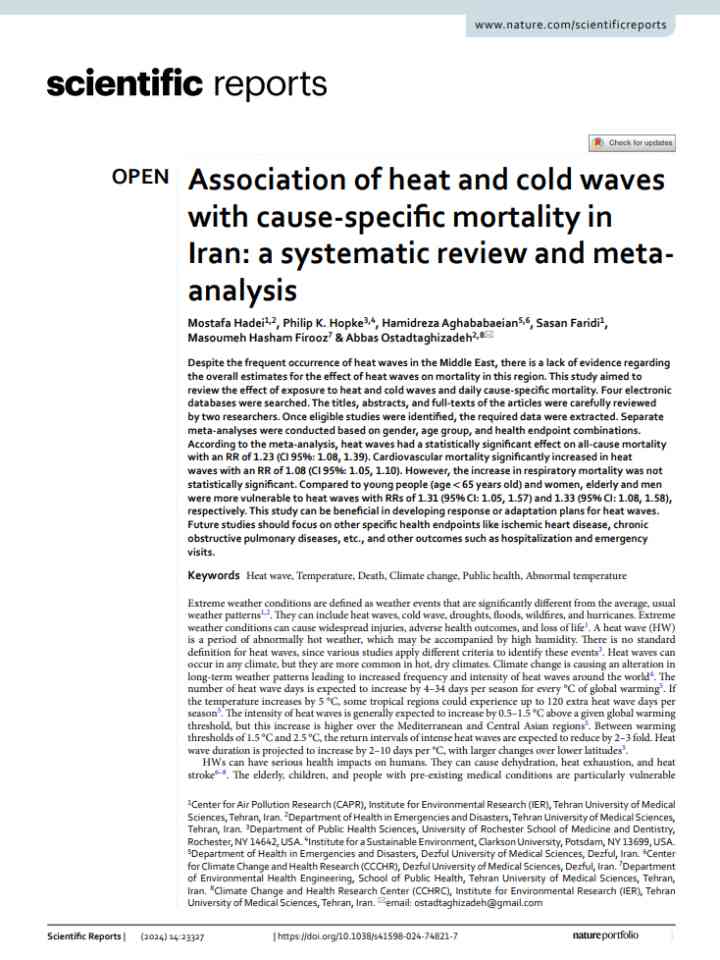Association of heat and cold waves with cause-specific mortality in Iran: a systematic review and meta-analysis
This report examines the effects of extreme temperatures on mortality rates in Iran. The findings show that heat waves significantly increase mortality, particularly from cardiovascular causes, with the highest impact on men and the elderly. The study also found a strong association between heat waves and deaths from ischemic heart disease and stroke, while no significant link was observed for respiratory mortality. Cold waves, though less studied, were associated with an increase in all-cause and cardiovascular mortality, though further investigation is needed to clarify these findings.
In light of these results, the report calls for more in-depth research, particularly on cold waves, to better understand their impact on specific health outcomes such as cardiovascular and respiratory diseases. It highlights the importance of studying hospitalizations related to heart attacks, strokes, and lung conditions, which remain under-researched in extreme weather contexts. Policymakers are encouraged to develop targeted response strategies to mitigate the risks of both heat and cold waves, prioritizing vulnerable groups like the elderly, men, and those with existing health issues. Recommendations include enhancing public health interventions, implementing early warning systems, and adapting infrastructure to better protect against future extreme temperature events.
Explore further

